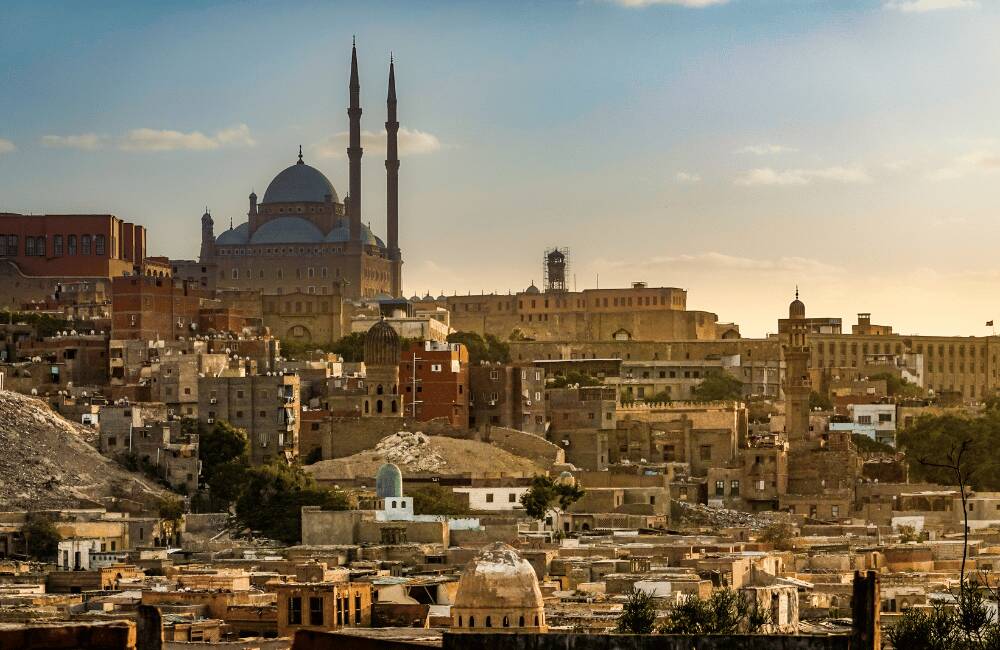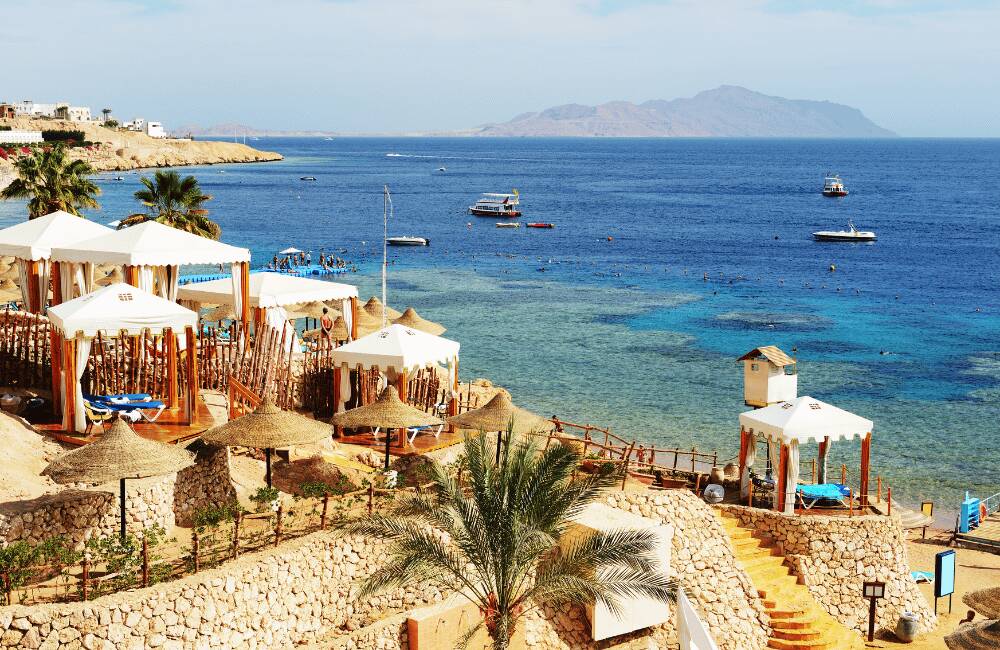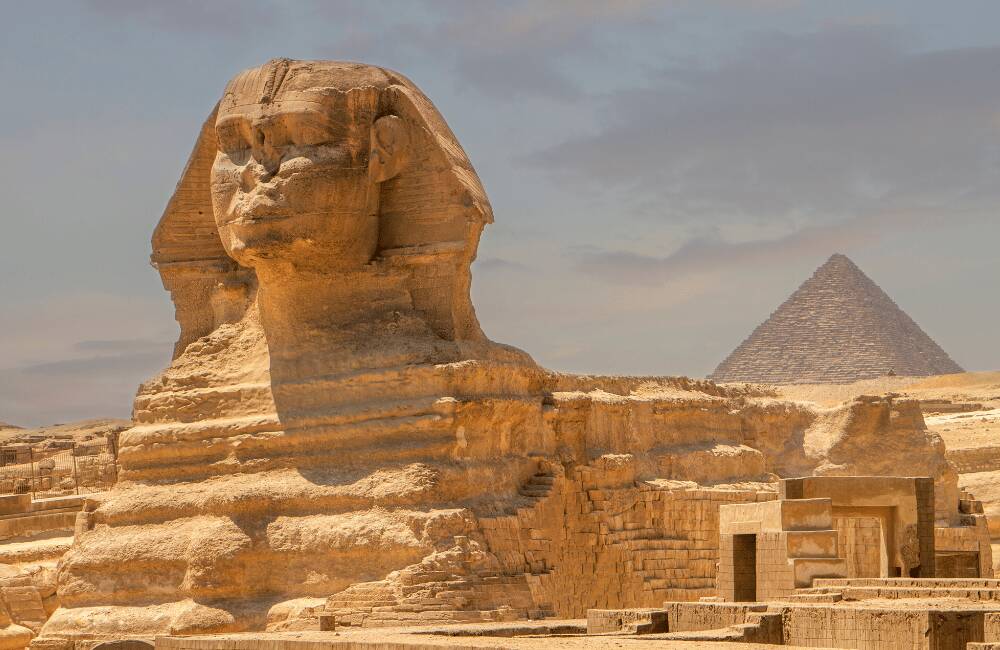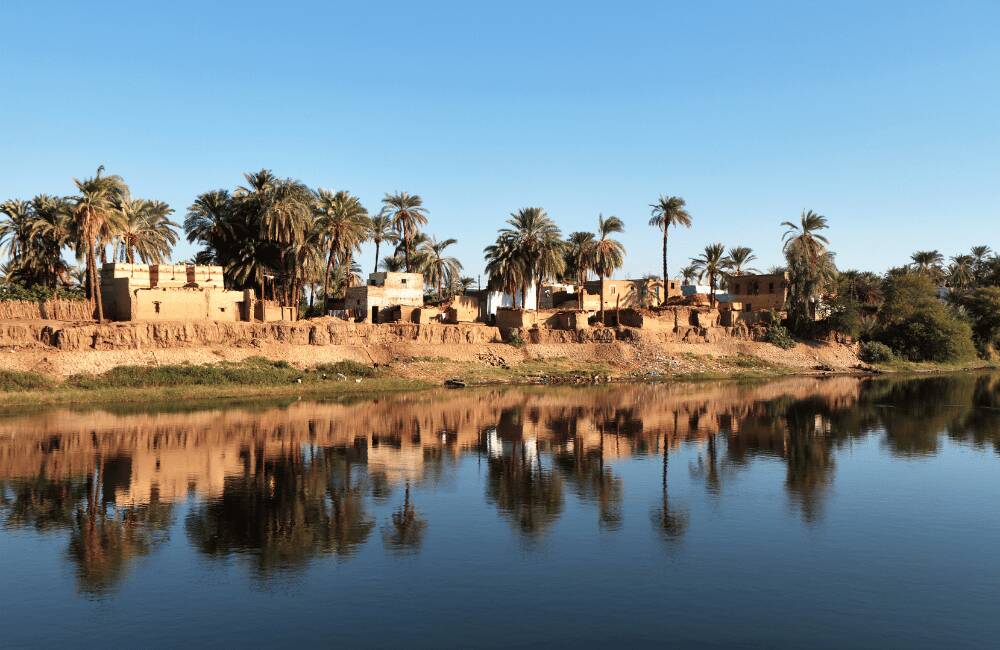Planning a trip to Egypt? Choosing the right time to go can make or break your experience. From the ancient pyramids of Giza to cruising the Nile or diving in the Red Sea, Egypt has something for every kind of traveler, but weather, crowds, and costs vary widely throughout the year. In this guide, we’ll help you decide when to visit based on comfort, budget, safety, and what you want to explore.
And no matter when you go, travel insurance is highly recommended. It can be a lifesaver in case of medical emergencies, lost luggage, or unexpected changes in plans.
Index
- Which month is best to visit Egypt?
- What month is the cheapest to visit Egypt?
- What is the best time of year to visit the Pyramids?
- Is it safe to go to Egypt right now?
- Do U.S. citizens need a visa for Egypt?
- What are the warnings about traveling to Egypt?
- Why you should never travel to Egypt without travel insurance
Which month is best to visit Egypt?
If you’re planning a trip to Egypt, timing matters. The best time to travel to Egypt depends on what you want to see and do, but for most travelers, October through April is ideal.
During these months, Egypt enjoys mild, comfortable weather and blue skies, especially in popular destinations like Cairo, Luxor, and Aswan. Days are warm but not scorching, and evenings are cool, making it perfect for exploring the busy streets or taking Nile cruises.
Here’s a quick monthly guide:
- October to February: Best for exploring ancient sites without the heat. This is also winter peak season, so expect more tourists and slightly higher prices.
- March and April: Still pleasant, with fewer crowds. Great for a river cruise, visiting the pyramids, or enjoying Sham El Nessim festivities in spring.
- May to September: These summer months bring intense heat, especially in the south. If you plan to visit then, stick to coastal areas like the Red Sea coast, or travel early in the day to beat the heat.
For most people, November is a sweet spot, cool enough for long days outdoors and less crowded than December and January.

What month is the cheapest to visit Egypt?
If you’re looking to visit Egypt on a budget, the cheapest month is typically August. It falls in the low season when flight and hotel prices drop significantly.
This is because August is one of the hottest months of the year in Egypt. Temperatures often soar above 100°F (38°C), especially in southern cities like Luxor and Aswan. That extreme heat keeps most tourists away, which brings down prices.
You may also find good prices in June and early September, though the weather is still hot. Booking in advance and being flexible with your travel dates can also help you save. While August isn’t the most comfortable, it’s the most budget-friendly time to visit Egypt if you’re focused on saving money.

What is the best time of year to visit the Pyramids?
The best time of year to visit the Pyramids of Giza is between October and April, when the weather is cooler and more comfortable for exploring outdoors.
Egypt’s desert heat can be intense, especially from May to September. During those months, the midday sun makes walking around the pyramids challenging—even dangerous. That’s why most travelers plan their visit during the cooler seasons.
Here’s what to keep in mind:
- December through February: These months offer the most pleasant daytime temperatures, though mornings can be chilly.
- November and March: Ideal balance of mild weather and fewer crowds.
- Early mornings: No matter the month, arriving early helps you avoid the heat and the biggest tour groups.
Keep in mind that winter is one of the busiest times, so it’s smart to book entrance tickets and tours in advance. For the best photo lighting and fewer tourists, get there right when the site opens. Sunset is also beautiful, but mornings are cooler and less crowded.

Is it safe to go to Egypt right now?
Yes, it is generally safe to travel to Egypt, but there are important things to keep in mind before you go.
Tourist areas like Cairo, Luxor, Aswan, and the Red Sea resorts are usually secure and well-patrolled. Millions of travelers visit Egypt each year without incident. However, like any international destination, it comes with risks. Here’s what to know about safety in Egypt right now:
- Political protests and demonstrations do happen. Avoid large gatherings and follow local news updates.
- Petty crime, like pickpocketing, can occur in tourist sites and crowded areas. Stay aware of your surroundings.
- Border areas, especially near Libya and parts of the Sinai Peninsula, are not considered safe. Always check official travel advisories.
- Egypt has a strong security presence in major cities, airports, and historical sites. It may feel intense but is meant to protect tourists.
- While rare, terrorist groups have targeted remote or sensitive areas in the past. Stick to well-known destinations.
It’s a good idea to register with your embassy or consulate before traveling and to follow any consular safety updates. If you stay in tourist-friendly areas, use common sense, and avoid restricted zones, your trip to Egypt should be both safe and rewarding.
Do U.S. citizens need a visa for Egypt?
Yes, U.S. citizens need a visa to enter Egypt. The good news? It’s a simple process with multiple options.
You can get your visa in one of three ways:
- e-Visa (Online): The easiest option. Apply online before your trip through Egypt’s official e-Visa portal. It’s fast, usually approved within a few days, and avoids airport delays.
- Visa on Arrival: Available at most international airports in Egypt. Just bring $25 USD in cash and your passport.
- Embassy or Consulate Application: Apply ahead of time at an Egyptian embassy or consulate in the U.S., especially for longer stays or multi-entry visas.
Make sure your passport is valid for at least six months from your arrival date. Have printed copies of your travel plans and accommodations, just in case local authorities request them.
So yes, you do need a visa, but getting one is easy and affordable, making it simple to plan your trip to Egypt.

What are the warnings about traveling to Egypt?
Before you book your trip, it’s important to understand the current travel warnings for Egypt. While the country welcomes millions of tourists each year, there are areas that require extra caution.
Here’s what travelers should be aware of:
- Border regions near Libya and Sudan are considered dangerous due to instability, armed groups, and limited law enforcement. Avoid these areas.
- Parts of the Sinai Peninsula, especially the north and central zones, carry higher risks. Sharm El Sheikh, in the south, is safer but still monitored.
- The U.S. Department of State currently lists Egypt under a Level 3: Reconsider Travel advisory due to concerns about terrorist groups, regional tensions, and occasional unrest.
- Political demonstrations can happen unexpectedly, especially in busy streets of Cairo. Avoid protest areas and don’t engage in political discussions.
- There may be police and military checkpoints on highways or near sensitive locations. Always carry ID and cooperate with local authorities.
- Healthcare in rural areas is limited. In a serious emergency, medical evacuation may be required, so make sure your travel insurance includes this coverage.
Despite these warnings, Egypt’s tourist sites are generally safe and well-secured. With smart planning, attention to official travel advice, and proper precautions, most visitors enjoy a safe and unforgettable experience in Egypt.
Why you should never travel to Egypt without travel insurance
Whether you’re visiting Egypt during the winter peak season or braving the summer heat for better deals, travel insurance is a must. Here’s why:
- Medical emergencies can happen at any time, and quality care may require costly services or medical evacuation.
- Flight cancellations, delays, or lost luggage are more common than you think, especially during busy travel seasons.
- In case of political unrest or unexpected safety concerns, having the right coverage makes all the difference.
Don’t risk traveling without it, especially in a country where access to services can vary so widely by region. Before you go, review your policy details and make sure it covers everything you need for a stress-free adventure in Egypt.
Featured stories













